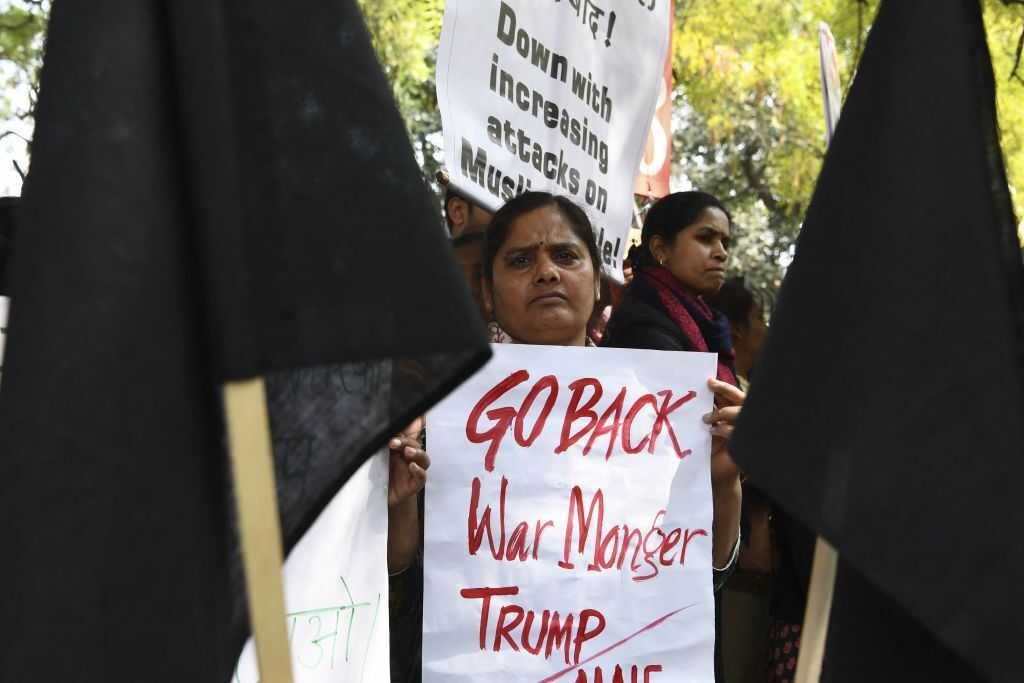From the scorching summers of girlhood in India to the political heat of today, the fires that threatened to silence us became the fuel for our fight.
The summers of my childhood arrived like an unwanted guest, overstaying, overbearing and utterly unforgettable.
In Kolkata, India, the heat wasn’t just a temperature of 110 degrees; it was a presence. It slid down your back under cotton kurtas (tunics), filled the cracks in the pavement, and simmered just beneath every judgment, every unspoken rule about what girls could and could not wear or do. Trying to stay cool was a daily challenge—a game we played against the sun.
I remember long, languorous afternoon naps with my grandmother in her sprawling bungalow, the tik-tik-tik of the fan competing with her determined snores. The cries of peddlers filled the streets, their voices crackling with thirst. Pleasure came in sampling mangoes and rating one variety over another until our bellies were full and slightly sick from overindulgence. With no summer camps and only a short vacation, we passed the time with math multipliers and plotting ways to be outdoors without getting cooked.
Wearing shorts was taboo, so it was knee-length cotton dresses, hardly ideal for climbing mango trees to pluck the fruit straight off the stem. The heat dulled faces and tempers. Grown-ups encouraged girls to sit quietly, legs pressed shut, expressions blank.
Back then, summer felt eternal. Its days were long and slow, yet tinged with urgency as if we needed to wring meaning out of every moment. I was a girl who noticed everything: the way women’s voices dropped around men, too hot to argue; the way dupattas were carefully wrapped to conceal bare shoulders; the way hair was yanked into tight buns to spare the neck from sweat. Heat made everything sharper if you dared to look. Or maybe it just made things more unbearable.
Only one room in our house had air conditioning, and even that came at a cost: You’d have to sit through adult gossip, dull television serials, or worse, endure the whine of Carnatic music on All India Radio that my mother insisted on for her siesta. Turn it off, and she’d wake up irate.
There was heat in the body too—a restlessness, an impatience, a dawning awareness of what it meant to grow into a girl in a world already lined with expectations. Summers were when I first learned to shrink myself. There were whispered warnings about climbing trees with underwear visible, questions about modesty, about what girls might provoke simply by being outside, by being seen.
I didn’t have the language for patriarchy yet, but I could feel it hot and heavy like the monsoon clouds just before they burst.
That idea of summer changed forever the year I watched Grease, just before I left for Smith College in 1985. Summer Lovin’—what a revelation. John Travolta and Olivia Newton-John dancing provocatively across the screen introduced me to a whole new kind of heat. Not one born of rules and repression, but of longing, freedom and wild possibility. It redefined what summer could mean.
I looked forward to American adventures, and they didn’t disappoint. I had my own version of that song, enacted, let’s just say, without parental supervision. For the first time, summer wasn’t about shrinking or silence. It was about stepping into something unknown, into desire, into independence, into a kind of audacity that had always simmered just beneath the surface.
Summers were when I first learned to shrink myself. … Grown-ups encouraged girls to sit quietly, legs pressed shut, expressions blank.
Decades later, I find myself in a different kind of heat—not from the sun, but from the headlines: the rage, the lies, the erasure. This is the heat of 2025: Trumpism returned, democracy under siege, rights dismantled. Roe is gone. Truth is a moving target. Rage simmers, thick enough to choke on.
This is not the world we thought we were building.
Some days, I feel that same weight I did as a girl in summer—exposed, disbelieved, voiceless. But I am not that girl anymore. I have lived through the kind of heat that bakes your silence until it cracks. The kind that teaches you the price of speaking up and the cost of not. I have learned that survival is not passive. It is fierce, exhausting and always political. It is both inherited and chosen.

The world is burning, literally and figuratively. And once again, women are being asked to carry water to every fire.
I watch young women protest in Tehran and have their bodies usurped in Tennessee. I hear testimonies from girls demanding justice for violence endured in silence. I see mothers trying to explain consent to sons when TikTok says otherwise. And I think about how long we’ve all been sweating under the same systems that punish truth-telling.
In these moments, I return to those childhood summers. Not just for the discomfort, but for the clarity. Because in heat, everything sharpens. You see what survives. You see what wilts. And you learn how to move through the world without losing your shape.
Today, I have the honor of standing beside women and girls who refuse to disappear. Women who have faced down dictators, judges, ministers, even entire cultures, built on looking away. Girls who have fought to outlaw child marriage, marital rape, female genital mutilation. The battles are long. But they are waged with a kind of fire that feels deeply familiar. This is not rage for rage’s sake. It is heat with purpose.
I often think about the difference between heat and light. Light is what we’re told to seek: something that shines, that brightens and illuminates. But heat? Heat has the power to change things. It softens metal. It makes movement possible. It purifies and kills bacteria.
This summer, as the world feels like it’s turning upside down, I find myself once again standing in the heat. And this time, I do not shrink from it. I do not sweat with shame. I do not fear what it reveals.
Because I have known intense heat.
I have known what it is to grow up female in a world that wished I were male. I have known what it feels like to be disbelieved, underestimated, patronized and what it feels like to win anyway. I have known what it means to lead in rooms that reward men for just being male.
The heat is rising, not just in temperature, but in pressure. And maybe, just maybe, we are reaching a boiling point that can no longer be ignored.
I was a girl who noticed everything: the way women’s voices dropped around men, too hot to argue …
The girl I was in Kolkata would not recognize the woman I am today. But she would recognize the heat. And I think she would be proud that I use it now to push, to write, to fight, to lead. So, this summer, I do not long for shade. I do not hide from the 108 degree sun I just experienced last week in Seville while fighting for democracy. I let the sweat gather on my skin and remind me:
I’m still here. We’re still here. And we are not done yet.
Great Job S. Mona Sinha & the Team @ Ms. Magazine Source link for sharing this story.



